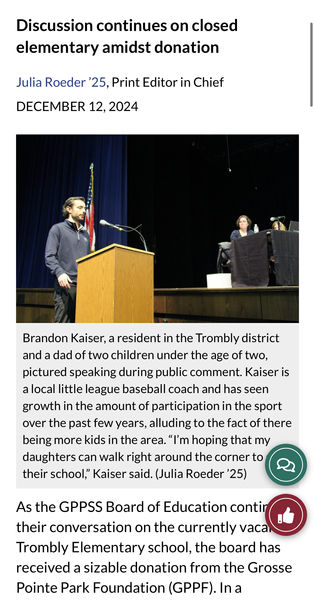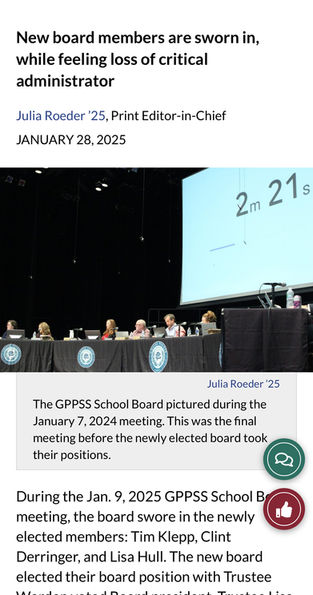Reporting
What makes a good journalist is their drive to be a reporter. Without a strong system of reporting, a good, fair and informative article cannot be written. When I first joined the staff as a sophomore, I was overwhelmed with the amount of work that had to be done in order to produce a sound news story. All the interviews, notes and needing to understand every detail on what you are covering was a daunting task. Now that I have been covering one specific beat that constantly has news flowing, I have figured out what works and doesn't work for me. Today, I pride myself on how I find my reliable sources and my thoughtfulness behind constructing a story.
Where to find the news
Localizing national stories
Localizing national stories: Everyday right when I get out of bed, I hit play on the New York Times’s podcast “The Daily". The key to finding stories is to stay informed and alert. Something C-Span's founder, Brian Lamb, told me at the Free Spirit Conference was to never stop reading. Now, he said he reads six whole newspapers everyday. I’m not saying I do that, I on average try to read 2-4 full news stories everyday from different sources. I follow both Fox News and CNN on their social media platforms. You have to get the news from every angle and perspective possible, and this approach has resulted in many story ideas to be covered in The Tower.
Examples of story ideas I have pitched after seeing national coverage:
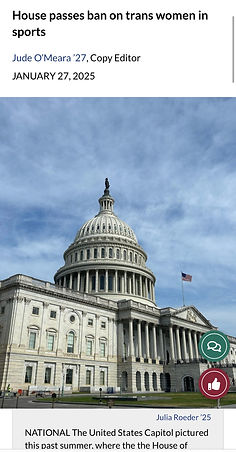
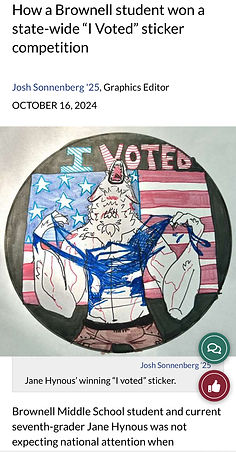
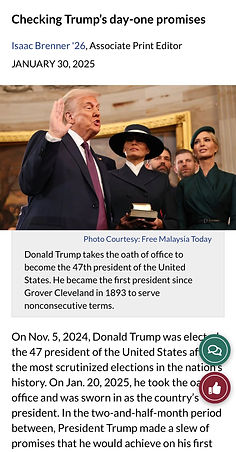
Finding the news locally
As the reporter covering the school board, I now have community members reaching out to me with story ideas and the latest rumblings of what is happening at the board level. Having these connections has been helpful when the board is not transparent with the community on every topic. I have made it a habit of mine to check the school board’s website daily to stay updated on when new meetings are posted and what is added to the agendas. Just keeping up in this fashion, many stories have naturally come my way.
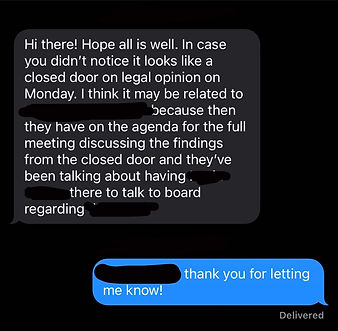
An example of a community member reaching out to me.
Interviewing
Something Duante Beddingfield, the Detroit Free Press's Arts and Culture reporter, told me over lunch is to always ask sources if they have anything else to add. Sometimes interview questions can be too pointed, or don't touch on the real emotions of how people are feeling. Allowing them a time to say whatever they want can give you the best quotes, or at least background information.
After attending the Free Spirit Conference, I learned new tips on how to interview, ones that have since brought some of the best quotes to my stories. While listening to Douglas Soule, a First Amendment Reporter for the USA Today network, he gave the advice to ask your source to recap what is happening as if you were an eight year old. This has helped me get quotes from those working in government who use large words and abbreviations when talking to dumb it down a bit to make it easily understandable.
Staying organized
My publication uses a Google Drive for all staffers to stay organized. The process of staying organized is not worked into your grade, leaving some staffers to not stay organized. I have realized that staying organized has helped me in the long run. There have been countless times where I needed a photo from a board meeting months ago and I had a folder labeled in the Google Drive for me to get it out of. Or when I needed notes from a meeting that happened weeks ago for a story. The skill of staying organized has helped me endlessly.
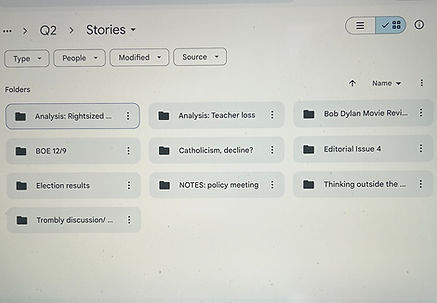
This is what my quarter 2 Google Drive looked like.
Sourcing while covering the school board
I learned quickly that you can not give a voice to every public comment person that comes to the podium to speak to the board. Considering some of the public commenters are encouraged by board members to amplify that board member's ideas, it would be journalistically unethical to quote them. What I quickly learned to do was to listen to all of the public comments and draw the best quotes from the general consensus of what the majority of the speakers spoke about. This ensured that I was getting the majority of the public’s thoughts in one quote. By doing this I would also take a counterpoint quote to make sure that both sides were heard.
A few stories I wrote quoting public comments:
